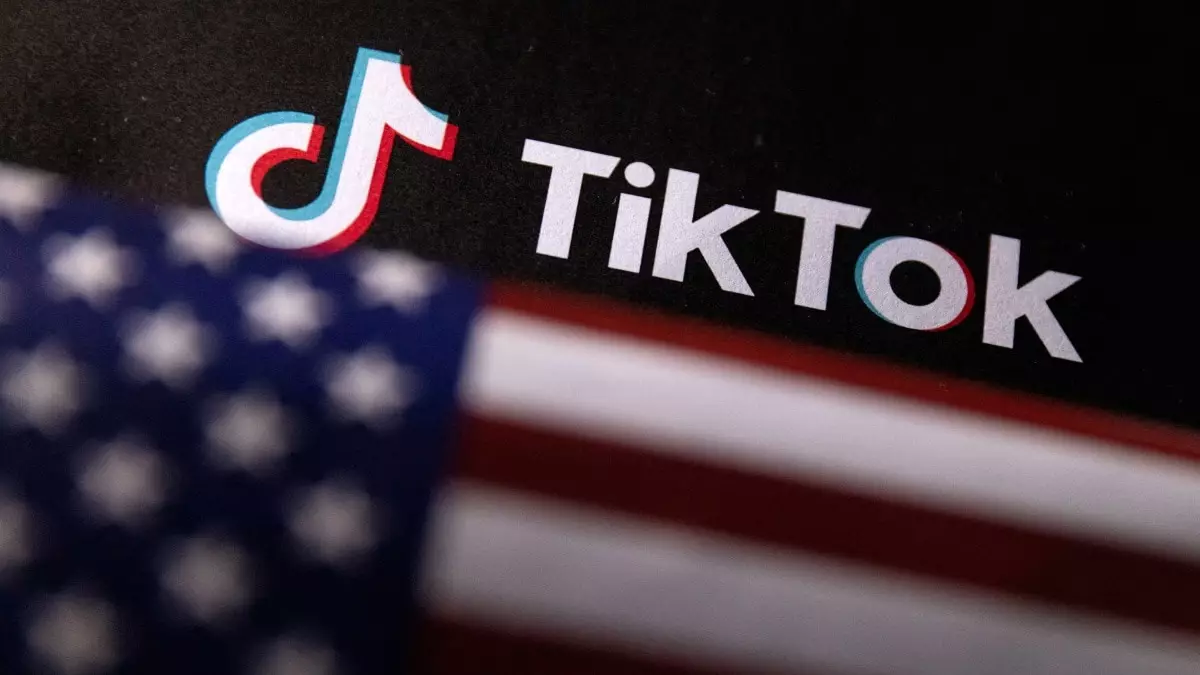As the political landscape continues to shift, the contentious relationship between the popular social media platform TikTok and the U.S. government remains a focal point. President-elect Donald Trump recently urged the Supreme Court to delay the enforcement of legislation that could either result in the ban of TikTok or compel its parent company, ByteDance, to divest its interests in the app. With over 170 million users in the United States, TikTok has become an integral part of the social media ecosystem, yet its Chinese ownership raises significant concerns about data security and national interests.
The legislation in question mandates that TikTok’s Chinese parent company must either relinquish ownership of the app to an American entity or face a potential ban, with a deadline set for January 19. This timeline is critical as it coincides with Trump’s inauguration date, which adds a layer of urgency to the situation. On one hand, the government emphasizes national security, while on the other hand, it grapples with the implications of infringing on digital freedoms.
Political Reversals and Strategic Alliances
Interestingly, Trump’s current stance marks a significant shift from his prior attempts to restrict TikTok in 2020, when he sought to force a sale to an American company. This reversal may indicate attempts to appeal to the app’s younger demographic, which forms a crucial voting bloc. Trump’s recent comments about having a “warm spot” for TikTok underscore his strategic pivot. In December, he met with TikTok CEO Shou Zi Chew, suggesting that the incoming administration may prioritize negotiating a resolution over legal confrontation.
This evolution in Trump’s approach highlights an ongoing trend where social media platforms, particularly TikTok, are not merely seen as various apps but as powerful tools influencing public discourse and electoral outcomes. The billions of views Trump reportedly garnered on TikTok during his campaign further emphasize how pivotal this platform has become in reaching voters.
The Legal and Social Implications
The legal ramifications of the TikTok situation extend beyond mere business interests; they involve complex questions of free speech, censorship, and national security. Trump’s legal counsel has urged the Supreme Court to provide the incoming administration with leeway to address these concerns politically rather than through stringent legal measures. This appeal resonates with the growing sentiment among some advocacy groups who argue that U.S. legislation targeting TikTok mirrors tactics used by authoritarian regimes to silence dissent and control information.
Contrarily, the Justice Department maintains that TikTok poses a risk to national security on the premise that Chinese influence could lead to data exploitation or content manipulation. As evidenced by the coalition of 22 state attorneys general, support for stringent measures against TikTok runs deep among some lawmakers, suggesting that the app’s future in the U.S. is far from secure.
The divide between governmental concerns and public sentiment presents a complex landscape. TikTok has taken steps to emphasize its commitment to data protection, asserting that its data is stored domestically on secure servers and that content moderation is handled within the U.S. However, whether those assurances alleviate the anxieties of lawmakers and users alike remains a moot point.
Public opinion surrounding Chinese-owned platforms often leans towards skepticism, driven by rising geopolitical tensions. The narrative that suggests TikTok could be a tool of surveillance is bolstered by broader allegations of Chinese espionage. Thus, the app not only finds itself under the microscope due to its popularity but also because of fear stemming from its origin.
As the Supreme Court prepares to hear the case, both TikTok and the U.S. government are at a critical crossroads. The outcome will not just determine TikTok’s fate but could also set important precedents regarding digital rights and government intervention in private business affairs. If the Court grants a stay, it could pave the way for a potentially different approach to resolving these tensions, one that balances national security with the evolving dynamics of social media.
The future of TikTok in the United States hinges on a multifaceted discourse that unites policy, public opinion, and the intricate relationship between technology and governance. In this rapidly evolving landscape, the ability to navigate these complex issues will ultimately shape the platform’s trajectory and the broader debate surrounding tech giants and their influence on society.


Leave a Reply